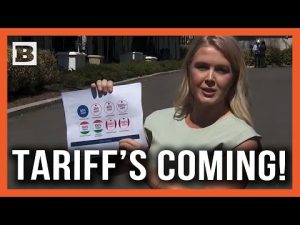The following video is brought to you courtesy of the Epic Economist YouTube Channel. Click the video below to watch it now.

As our economy loses force, the competition for government programs directed to the needs of different generations is about to explode as young and old Americans reach out for more help. Most of our current problems have been brought on by reckless monetary policies that have been driven by a lack of competence, honesty, and judgment to accept that a reckoning always arrives. The combination of growing investment risk, a disrupted business cycle, and imbalanced demographics are coming together to create a perfect storm. Baby boomers that have just or are about to retire currently hold much of America’s wealth, and over the past few decades, many of them have moved into risky investment looking for higher yields, the analyst explains.
Although we can still see a world of wealth, a world of debt is lying right next to it. Sadly, even though the economy expanded over the last decades, so did the inequality gap, and the largest share of this wealth is now in the hands of a few while debt is distributed in places where it will soon come back to torment us. Right now, demographics indicate that older consumers tend to downsize and spend considerably less compared to other groups. On the other hand, our boom-bust business cycle has been crushed by an unprecedented amount of government spending. In the markets, stock buybacks keep pushing prices to new records and indexes to even higher levels. And according to Moody’s estimate of Illinois’ retirement debts, which includes pension and retiree health shortfalls at the state and local level, in 2020, retirement debt reached nearly $530 billion. Of course, many other states and local governments are also facing the same problem. This huge amount of debt is being recorded despite a massive multi-year stock market rally.
Unfortunately, many people still believe in the narrative created by financial giants and pushed forward by the mainstream media that everyone is making money when they invest in a retirement plan. Most financial companies never tell investors that when they invest in a 401 plan, the risk is 100 percent absorbed by the individual who owns the plan. In most cases, the idea of compounded returns makes investors ignore the tyranny of compounded cost. According to Surz, there are many threats to baby boomers’ retirement — and a stock market crash is at the top of the list. For a long time, the author has been sounding the alarm that boomers are in the retirement “Risk Zone”, the five to 10 year period before and after retiring, an interval that can put their hoped-for golden years at risk.
“The risk of loss in normal times becomes the risk of ruin in the Risk Zone,” says Surz. At least 70 percent of boomers may retire having less than $300,000 in their retirement savings. There are 78 million baby boomers, and most of them are spending the decade of the 2020s in the Risk Zone. It’s awful. It’s called the retirement crisis, and it’s real. “We’ve never had so many people in the Risk Zone simultaneously,” Surz stresses. And the biggest problem for those in the Risk Zone and for Americans, in general, is that our public tends to believe that financial disasters like this can happen to other people but not them.
It doesn’t matter if boomers choose stocks or bonds, a market meltdown is likely to wipe out their savings. The stock market bubble is on its last legs while investors in the bond market are facing a huge risk of default, especially if they buy junk bonds because they may be completely crushed when interest rates rise. The ramifications of this retirement crisis will essentially affect everyone. When older people lose their savings or suffer acute wealth losses they will have little time to earn more. They will be forced to cut back on spending or need assistance to survive. When these people start selling their assets that can aggravate economic imbalances and compromise economic growth for decades. And considering the current outlook, that’s the perfect recipe for a disaster.
https://www.epiceconomist.com”



